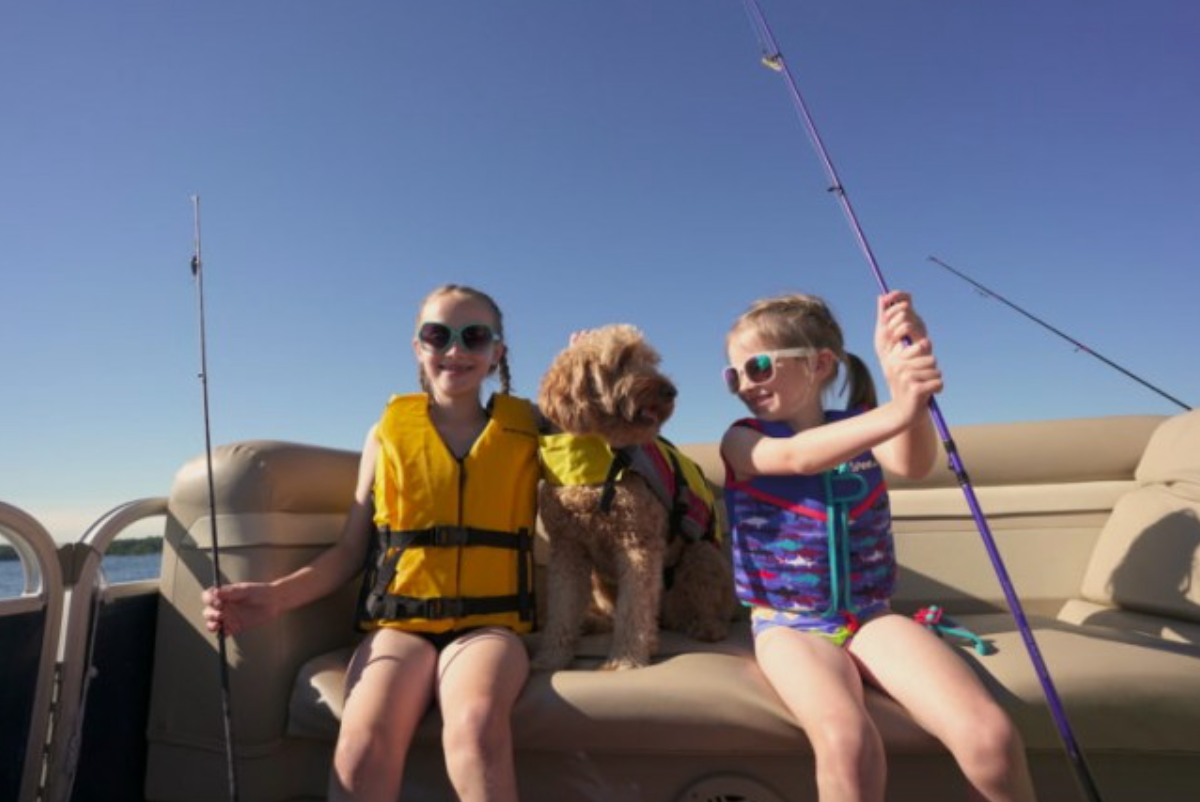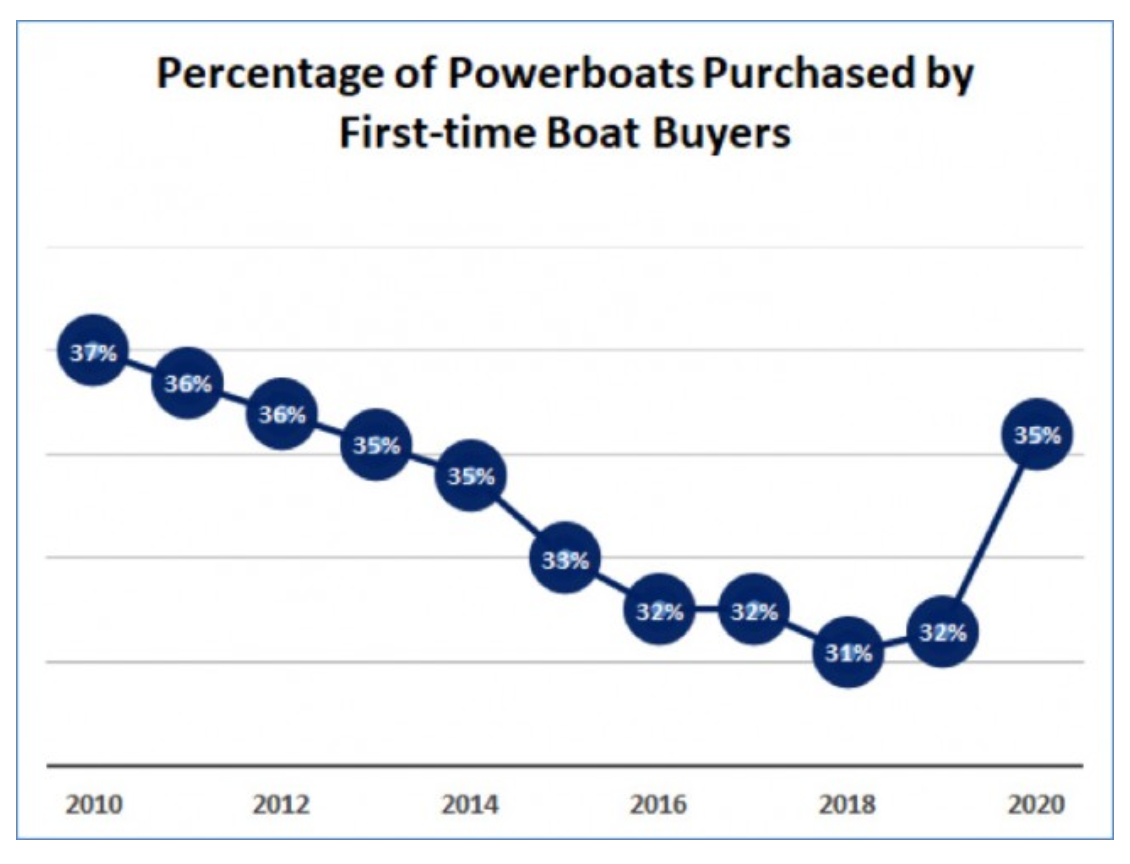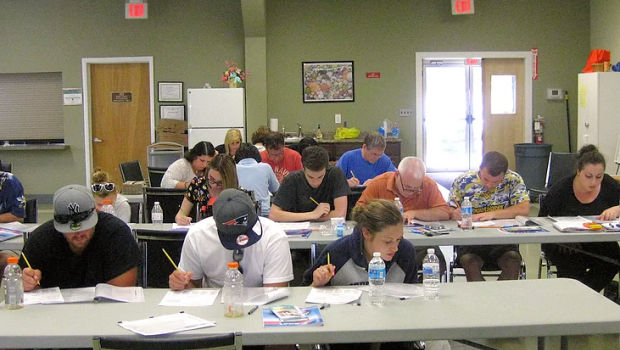Boaters Have Access to Live, Hybrid or Virtual Education Options
In 2020, the recreational marine industry enjoyed a significant boon in first-time boaters and boat ownership. Boating has emerged as a go-to antidote to the Coronavirus, with thousands of families turning to boating to satisfy the pent-up demand for safe, leisure activities and enjoyable entertainment.
Major Growth of First-Time Boat Buyers
According to Jack Ellis, managing partner of Info-Link, approximately 350,000 people purchased their first powerboat or auxiliary-powered sailboat and another 65,000 bought their first PWC, having never owned a boat before, bringing a total of 415,000 first-time boat buyers into the recreational boating fold in 2020.
Ellis notes this figure includes both new and pre-owned boat buyers and represents a whopping 35% increase in first-time boat ownership over the previous year.
With this positive upward trajectory in boating activity has come the sweeping need and growing demand to provide boating safety education to this group of new boat owners.
Shifting Trends in Boater Education
In the past, instruction has primarily been delivered through standard, on-site knowledge-based training programs offered by leading boating safety organizations such as the U.S. Coast Guard Auxiliary, the U.S. Power Squadron and many state boating agencies, among others. With the implications of social distancing and crowd control requirements, however, live boater ed classes took an attendance dive in 2020, while the promotion of virtual online programs has spiked.
“While we are still collecting numbers for how many persons were educated in 2020, we do know that virtual classes had, in many cases, far more students than those offered in a physical classroom,” said Verne Gifford, Chief of the Boating Safety Division (CG-BSX-2) at U.S. Coast Guard Headquarters.
“Educators were reporting three times the number of students, and many students remained after class to speak with and learn from instructors. Clearly, the convenience of receiving instruction at a location more convenient for the student was a great plus. Moreover, without this virtual option and the emergency approval from the States to do this during the pandemic, classroom instruction would not have been possible.”
In Person Classes
As vaccination programs evolve, live classes are beginning to return with strict social distancing measures in place. In addition, the advent of hybrid knowledge-based and live instruction, coupled with a bevy of virtual programs covering everything from rules of the road to advanced piloting and navigation continue to gain traction.
A leader in US and International sailing education, NauticEd launched in 2008 with a mission to create safer, more competent sailors. Their state-of-the-art online courses simulate real-life experiences so students can fully understand the theory of sailing before heading out for practical, on-the-water training with an accredited sailing school. NauticEd offers programs for all levels of sailors, including certification and licensing that satisfies the American National Standard and International UNE standards.
“To date, we’ve taught over 70,000 students and have seen tremendous growth in 2020 due to the global pandemic. With so many people stuck at home, they discovered that NauticEd’s program of 20 online e-learning classes is a great and easy way to start sailing.” said Grant Headifen, NauticEd Global Director of Education. “Online courses make education accessible and are inexpensive. The ability to learn on your own time schedule makes studying significantly more productive; this modern education system has proven to increase retention and effectiveness.”
According to Headifen, boating safety and competence requires theory knowledge, practical skills, and experience. When strategically presented using modern learning systems, the end result produces more knowledgeable and safer boaters. He believes NauticEd’s holistic approach to boater education focuses on the right training at the right time, including multimedia and hands-on experience teaching techniques that support different learning styles.
“Our instructors report that students show up for the practical training session already having completed the online theory courses and are well prepared for practical training,” he said. “Having passed the theoretical segment prior to the practical instruction allows the student to focus more on developing on-the-water skills, which maximize the learning experience with more and higher quality instructor training time.”
Added Jim Emmons, executive director of the Water Sports Foundation, “The great news for recreational boaters is that there is a wealth of boating safety training programs available, from live instruction with experts like the U.S. Coast Guard auxiliaries, to specific online classes you can enjoy at your leisure from the comfort of your home. There has probably never been greater access to boating education as there is today.”
Courses cover varied aspects of boating safety, from boat handling to reading the weather, from kid’s classes to electronics and advanced navigation. Many include certifications as part of the process.
The Water Sports Foundation is pleased to provide a robust list of links to top boating safety education providers and their respective programs which have been curated from multiple sites and contributors.
TOP BOATING SAFETY EDUCATION PROVIDERS & PROGRAMS
U.S. Coast Guard Auxiliary Local flotillas offer a variety of safety classes, including basic/introductory boating courses and safety courses, navigation, sailing and personal watercraft safety, among others.
United States Power Squadron “America’s Boating Course 3rd Edition” the most comprehensive boating safety course available. It includes a course book, a narrated student CD and a digital charting DVD. ABC 3 is available as a classroom, home study or online course.
American Boat Operators’ Course Offers online boating safety courses with online certification tests for a number of states.
American Sailing Association Beginner-advanced learn to sale educational classes and courses with certifications
BoatU.S. Foundation The Courseline is a searchable database of current boating safety courses around the nation.
BoatEd Offers online boating safety courses with online certification tests for a number of states.
Boatsafe Offers an online Basic Boating Certification Course approved by the National Association of State Boating Law Administrators, and a Coastal Navigation Course.
BoaterExam.com Offers online boating safety courses with online certification tests for a number of states.
Commander Bob Offers resources on boating education.
NauticEd Offers a wealth of sailing courses that all meet the American National Standard (ANS), EDU-3 skills-based sailboat standard.
PWC Safety School Offers online courses and certification for PWC operators in several states
Safe Boating America Safe Boating America classes meet the State Educational Requirements for operating a Boat or PWC and also meet the requirements for a Youth Operator.
State Courses Many states offer boating safety courses. The National Association of State Boating Law Administrators’ online Directory provides contact information for state boating agencies.
U.S. Sailing Programs offer instruction in small and large sailboats, windsurfers, and powerboats. All levels of instruction are available around the country for beginner to advanced skills. Information on courses and instruction is available on the web.
American Canoe Association Comprehensive resource to find skills courses, assessments, and instructor certification courses for kayak, canoe, raft, safety & rescue, and adaptive paddling.
CLICK HERE to access the U.S. Coast Guard Mobile App



